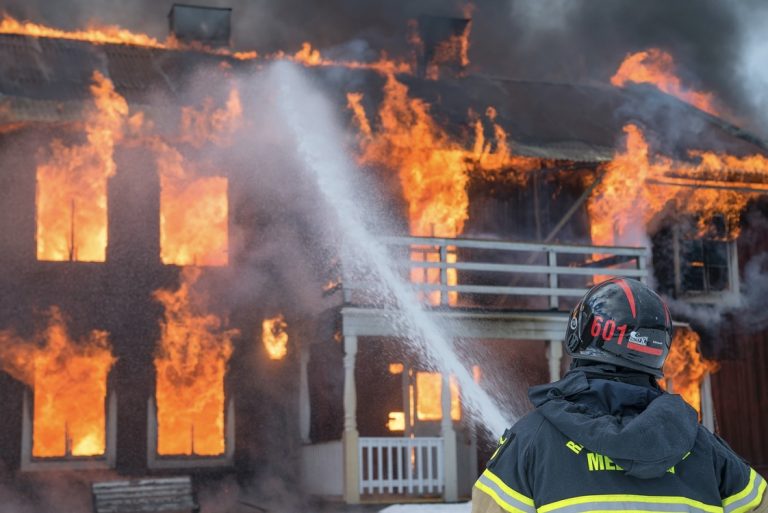A fire in your home is something that people have nightmares about. It’s a devastating experience for anyone who goes through it. Whether it’s the result of wildfires, an accident, a kitchen fire, or another reason, it’s often a traumatic experience, and one that can last long after the blaze has been extinguished.
After a fire, one responsibility that may feel overwhelming—and one that may be harder to find help with—is your home insurance claim.
Following these steps can provide help for house fire victims and guide you through a complicated but essential process.
Story Stages
#1 File a Written Claim
While you should contact your insurance provider by phone as quickly as possible to tell them about the loss, you will also have to file your claim in writing to begin the process. Doing this quickly will get the process started.
Once you’ve filed your claim, an insurance adjuster assigned by the insurance company will begin to assess the loss. While they will have an extensive role in your claim, it’s important to remember that they are hired by the insurer and are likely motivated to reduce the size and cost of your claim.
#2 Ask for Your Long-Form Policy
Your long-form policy includes all of the details regarding what’s actually covered by your insurance policy. This will show you information such as:
- The perils covered by the insurance policy (i.e., fire, extreme weather, water damage, floods, etc.)
- Your coverage limits for Structure, Additional Living Expenses, and Contents
- Special limits or exemptions on certain types of items
#3 Document Losses
Once you’ve been cleared for safe re-entry into your home, you will want to take photos of your damaged belongings and the damage to your home. Thorough documentation can help speed up the claims process and reduce disputes.
#4 Protect Sentimental Belongings
Some belongings are irreplaceable, and if they can be recovered, you will want to protect them from vandalism, looting, and the elements. However, make sure that you document them before removing them from the premises in case they turn out to be too damaged or you want restoration costs covered by the insurer.
#5 Create Your Schedule of Loss
The next step will be documenting all of the possessions you have lost. Especially in a fire, many items may have been destroyed or damaged. The insurance adjuster will want to know everything that you’ve lost before you’re reimbursed.
#6 Get a Cash Advance
One thing you can do to help with costs now is request a cash advance from your insurer. It can help with Additional Living Expenses such as staying in a hotel and finding a rental home for your family, especially because you will likely still have to keep up with mortgage payments and property taxes while repairs are being made.
#7 Create a Budget Based on your Policy
Even with a cash advance, you will still want to be aware of your policy limits and base your budget around them. With COVID-19 and supply chain issues continuing to cause delays in the construction industry, there’s no certainty that things will be finished on the timeline you expect.
#8 Keep Track of Your Expenses
Finally, keep the receipts for all of your expenses, including food, accommodation, and any necessary purchases, as many of these will fall under your Additional Living Expenses coverage. It helps to keep them organized in a folder.
